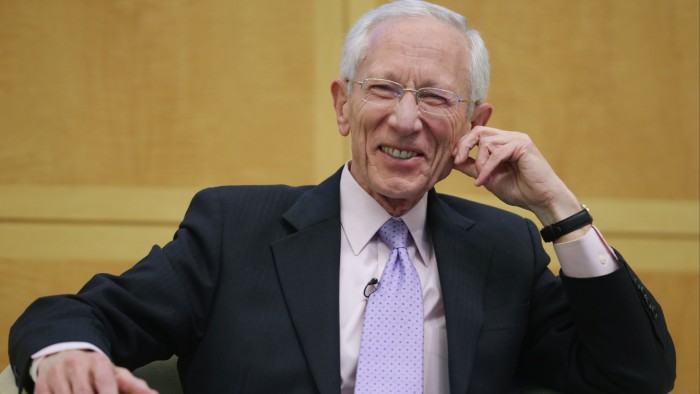Unlock the Editor’s Digest for free
Roula Khalaf, Editor of the FT, selects her favourite stories in this weekly newsletter.
Stanley Fischer, a former top policymaker at the US Federal Reserve and the Bank of Israel whose thinking was highly influential among generations of economists, has died at the age of 81.
A former vice-chair of the Fed, Fischer also served at the IMF, where as first deputy managing director he worked on the response to the Asian and Russian crises of the late 1990s. He also served as chief economist at the World Bank.
Fischer’s death was announced on Sunday by the Bank of Israel, where he served as governor from 2005 to 2013. The country’s president Isaac Herzog paid tribute to him as “a world-class professional, a man of integrity, with a heart of gold”.
While he attained some of the most senior positions in global economics, Fischer’s career was no less significant because of his academic and teaching work, including at Massachusetts Institute of Technology.
Former European Central Bank president Mario Draghi and former Fed chair Ben Bernanke were among the students whose PhD dissertations he helped supervise.
“The human dimension of Stan’s work was as impressive and impactful as his brilliant economic analysis and his remarkable communication skills,” said Mohamed El-Erian, president of Queens’ College Cambridge and chief economic adviser at Allianz.
“This quality was consistently evident — whether in his approach to individual country reform cases, his pursuit of a comprehensive, durable, and just peace in the Middle East or his contributions to the functioning of the international economic order.”
Born in the 1940s in Zambia when it was the UK protectorate of Northern Rhodesia, Fischer was the son of Philip, a Jewish immigrant from Latvia who owned a country store in the town of Mazabuka, and Ann, who was born in Cape Town and was the daughter of Lithuanian immigrants.
Fischer later recalled growing up surrounded by farmers with the influence of colonialism prominent in his upbringing. “I am a product of the British empire, there is no question about it,” he told the Financial Times in 2017. His family later moved to Southern Rhodesia, where as a teenager he got to know his future wife Rhoda, who died in 2020.
Fischer studied economics at the London School of Economics, launching an academic career that would also take him to MIT, where he received a PhD in economics in 1969 and ultimately a professorship.
His academic work in the 1970s proved to be groundbreaking as he built up the idea that activist central banks could stimulate the economy, becoming a leading figure in New Keynsian economics. His published work included the influential book Macroeconomics, co-authored with Rudi Dornbush and Richard Startz.
He joined the World Bank in 1988 before becoming the number two official in the IMF in 1994, serving under Michel Camdessus. His period at the Fund proved to be a turbulent one with the eruption of the emerging market crises of the 1990s.
He later moved to Citigroup, where he worked as vice-chair. A dual US-Israeli citizen, Fischer joined the Bank of Israel in 2005, where he helped steer the country through the turmoil of the global financial crisis that erupted later in the decade.

He joined the Fed in 2014, serving on the board under Janet Yellen. His period at the Fed was marked by internal disagreements over interest rates, as Fischer advocated for a more hawkish approach to policy than Yellen.
After the first Trump administration took power in 2017 he was vocal about the risks of financial regulation being thrown into reverse, something he described as “extremely dangerous and extremely short-sighted”.
“I had a picture of the world economy in which the United States was an anchor, not a source of volatility,” Fischer said at the time.
Fischer resigned from his position at the Fed in late 2017, more than six months before the post was due to end, saying in a letter to President Donald Trump that his departure was for personal reasons.
At the time Lawrence Summers, former US Treasury Secretary, wrote in the FT that “through his teaching, writing, advising and leading Stan has had as much influence on global money as anyone in the last generation”.
Former IMF chief economist Olivier Blanchard paid tribute to Fischer on social media on Sunday, saying: “He was an outstanding economist, an outstanding policymaker, but even more importantly, a great human being.”
Read the full article here




